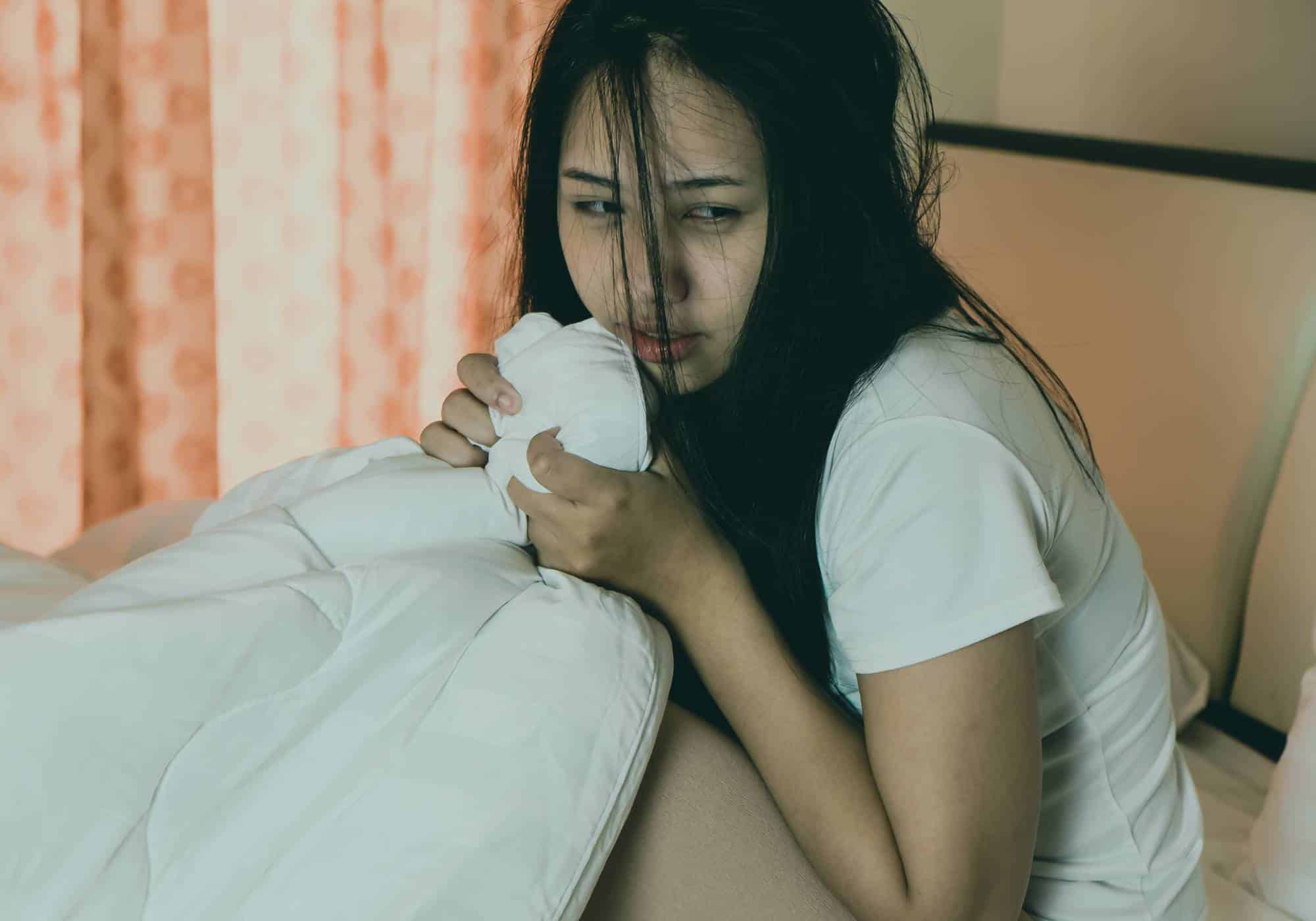Living with schizophrenia can be an overwhelming experience, not just for those diagnosed but also for their loved ones who witness their daily struggles. Among the various subtypes of schizophrenia, residual schizophrenia is less discussed but equally significant. This form represents a phase where the most intense symptoms may have subsided, but lingering effects continue to impact daily life. At Hooked on Hope Mental Health, we are dedicated to providing comprehensive care for mental health, and we believe that understanding residual schizophrenia is a crucial step toward healing and recovery.
What Is Residual Schizophrenia?
Residual schizophrenia is a subtype of schizophrenia characterized by a reduction in the intensity of prominent psychotic symptoms, such as hallucinations and delusions. Individuals in this phase may not exhibit the active symptoms that define acute schizophrenia but continue to experience subtle manifestations of the disorder.
In residual schizophrenia, the person may still display negative symptoms, which are deficits in normal emotional responses or thought processes. These can include social withdrawal, lack of motivation, and reduced emotional expression. While the overt psychotic episodes may have diminished, the residual symptoms can still significantly impair one’s quality of life.
It’s important to note that while the Diagnostic and Statistical Manual of Mental Disorders, Fifth Edition (DSM-5), no longer uses subtypes like residual schizophrenia, understanding this phase is essential for effective management and support. Recognizing residual schizophrenia helps in tailoring treatment plans that address the specific needs of individuals in this stage.
How Serious is Residual Schizophrenia?
Residual schizophrenia is a serious mental health condition that requires ongoing attention and care. Although the acute psychotic symptoms may have lessened, the remaining negative symptoms can be debilitating. They can affect an individual’s ability to function socially, maintain relationships, and perform daily tasks.
The seriousness lies in the subtlety of the symptoms. Because the more dramatic signs of schizophrenia are absent, it’s easy for both the individual and their loved ones to underestimate the condition’s impact. This underestimation can lead to neglecting necessary treatment and support, potentially causing a relapse into more severe symptoms.
Additionally, residual schizophrenia can contribute to feelings of hopelessness or depression. Without proper intervention, individuals may be at risk for substance abuse as a coping mechanism, further complicating their mental health journey. Recognizing the gravity of residual schizophrenia is crucial in preventing deterioration and promoting recovery.
What Are Residual Schizophrenia Symptoms?
Residual schizophrenia is characterized by the presence of negative symptoms and a decrease in positive symptoms. Understanding these symptoms is essential for recognition and support.
Negative Symptoms
Negative symptoms involve the absence or reduction of normal behaviors and emotional responses.
They include:
- Affective Flattening: Reduced expression of emotions through facial expressions, voice tone, or body language. The individual may appear emotionally unresponsive or detached.
- Alogia: Limited speech output, leading to brief and empty replies. Conversations may be sparse and lack substance.
- Avolition: Decreased motivation to initiate and perform self-directed purposeful activities. This can manifest as difficulty starting or completing tasks.
- Anhedonia: Inability to experience pleasure from activities usually found enjoyable. Hobbies and interests may no longer bring satisfaction.
- Social Withdrawal: Isolation from social interactions and relationships. The person may avoid social settings and have limited contact with others.
Cognitive Symptoms
These symptoms affect thinking processes:
- Difficulty Concentrating: Trouble focusing on tasks or conversations. This can impact work or academic performance.
- Poor Memory: Challenges with short-term memory and recalling information. Forgetfulness may become more noticeable.
- Executive Dysfunction: Difficulty with planning, organizing, and decision-making. Everyday tasks may become overwhelming.
Residual Positive Symptoms
While reduced, some positive symptoms may linger:
- Mild Delusions: Holding onto beliefs that are slightly distorted from reality. These beliefs may not be as intense as during acute phases.
- Occasional Hallucinations: Infrequent sensory experiences without external stimuli, such as hearing faint voices or seeing fleeting images.

What Are the Causes of Residual Schizophrenia?
The exact causes of residual schizophrenia, like other forms of schizophrenia, are not fully understood. However, it is believed to result from a combination of genetic, biological, environmental, and psychological factors.
Genetic Factors
A family history of schizophrenia can increase the likelihood of developing the condition. Genetic predisposition plays a significant role, although it doesn’t guarantee that someone will experience schizophrenia. Multiple genes are thought to be involved, affecting brain development and neurotransmitter regulation.
Neurobiological Factors
Abnormalities in brain chemistry and structure are associated with schizophrenia. Imbalances in neurotransmitters, such as dopamine and glutamate, can affect communication between brain cells, influencing symptoms. Structural differences in brain regions responsible for thinking and perception may also contribute.
Environmental Factors
Exposure to certain environmental stressors may trigger schizophrenia in individuals who are predisposed.
These can include:
- Prenatal Exposure: Infections, malnutrition, or stress during pregnancy can affect fetal brain development.
- Birth Complications: Oxygen deprivation or other complications during birth may increase risk.
- Childhood Trauma: Abuse, neglect, or severe stress in early life can impact mental health.
- Urban Living and Social Disadvantage: Higher stress levels in urban environments or socioeconomic hardships may play a role.
Substance Use
Substance abuse, particularly during adolescence and early adulthood, can increase the risk of developing schizophrenia. Drugs like cannabis, LSD, and amphetamines may trigger symptoms in susceptible individuals. Substance use can also exacerbate existing symptoms and interfere with treatment.
What Are the Risk Factors for Residual Schizophrenia?
Understanding the risk factors can help in early identification and intervention.
Some of the key risk factors include:
Family History
Having a first-degree relative (parent or sibling) with schizophrenia significantly raises the risk. Genetic predisposition combined with environmental factors can influence the development of the disorder.
Age and Gender
Schizophrenia symptoms typically appear in late adolescence or early adulthood. Males often experience onset earlier than females, usually in their late teens to early twenties, while females may develop symptoms in their late twenties to early thirties.
Stressful Life Events
High-stress situations, such as the loss of a loved one, unemployment, or significant life changes, can contribute to the onset or exacerbation of symptoms. Stress may act as a trigger in individuals already vulnerable due to genetic or environmental factors.
Substance Abuse
Misuse of psychoactive substances can increase the risk and severity of schizophrenia symptoms, leading to a prolonged residual phase. Substance abuse can interfere with treatment adherence and exacerbate negative symptoms.
Social Isolation
Lack of a supportive social network may exacerbate symptoms and hinder recovery. Isolation can intensify feelings of loneliness and depression, contributing to a decline in functioning.
Diagnosing Residual Schizophrenia
Diagnosing residual schizophrenia involves a thorough evaluation by a mental health professional.
The process includes:
Clinical Assessment
A psychiatrist or psychologist will conduct interviews to understand the individual’s history, symptoms, and functioning.
They will inquire about:
- Past Psychotic Episodes: Details of previous acute episodes and their severity.
- Current Symptoms: Focus on negative and any lingering positive symptoms.
- Impact on Daily Life: How symptoms affect work, relationships, and self-care.
- Substance Use History: Screening for alcohol or drug use that may influence symptoms.
Diagnostic Criteria
According to diagnostic guidelines, residual schizophrenia may be considered when:
- History of Schizophrenia: There has been at least one episode of schizophrenia meeting full diagnostic criteria.
- Reduction of Positive Symptoms: Prominent positive symptoms (hallucinations, delusions) are no longer present or significantly reduced.
- Persistence of Negative Symptoms: Negative symptoms continue to affect functioning.
- Duration: Symptoms have continued for a prolonged period, typically at least one year.
Psychological Testing
Standardized assessments may be used to evaluate cognitive functions, mood, and symptom severity. Tests can help differentiate residual schizophrenia from other mental health conditions.
Medical Examination
A physical exam and laboratory tests can rule out other conditions that might cause similar symptoms, such as:
- Neurological Disorders: Conditions like epilepsy or brain tumors.
- Substance-Induced Psychosis: Effects of drug or alcohol use.
- Medical Conditions Affecting the Brain: Thyroid disorders, infections, or vitamin deficiencies.

How to Treat Residual Schizophrenia
While residual schizophrenia presents challenges, effective treatment options are available. A comprehensive approach combining medication, therapy, and support can improve outcomes.
Medication
Antipsychotic medications are a cornerstone in managing schizophrenia. They help regulate neurotransmitter activity, reducing symptoms.
- Atypical Antipsychotics: Medications like risperidone, olanzapine, or quetiapine may be prescribed to address lingering symptoms. They tend to have fewer side effects than older antipsychotics.
- Medication Management: Regular monitoring ensures effectiveness and manages side effects. Adjustments may be needed over time.
Psychotherapy
Therapeutic interventions can enhance coping strategies and improve functioning.
- Cognitive Behavioral Therapy (CBT): CBT helps individuals recognize and change distorted thought patterns and behaviors. It can:
- Address Negative Symptoms: Techniques to increase engagement and motivation.
- Improve Problem-Solving Skills: Strategies to handle daily challenges.
- Enhance Social Functioning: Building confidence in social interactions.
- Social Skills Training: Building interpersonal skills aids in social integration and reduces isolation. Role-playing and practice sessions can improve communication.
- Family Therapy: Involving family members can strengthen support systems and improve communication. Education about the condition helps families provide effective assistance.
- Psychoeducation: Educating individuals and their loved ones about schizophrenia promotes understanding and adherence to treatment plans. Knowledge empowers people to recognize early signs of relapse and take preventive action.
Supportive Services
- Case Management: Coordination of care and resources. Assistance with housing, employment, and access to services.
- Vocational Rehabilitation: Assisting with employment opportunities and skills development. Support in finding and maintaining meaningful work.
- Peer Support Groups: Connecting with others facing similar challenges provides encouragement and reduces feelings of isolation.
- Substance Abuse Treatment: If substance abuse is a factor, integrated treatment addressing both schizophrenia and addiction is crucial. Combining therapies ensures that both conditions are managed effectively.
Lifestyle Modifications
Encouraging healthy habits can support overall well-being.
- Regular Exercise: Enhances mood and physical health. Activities like walking, yoga, or swimming can be beneficial.
- Balanced Diet: Supports brain function and energy levels. Nutrient-rich foods promote overall health.
- Adequate Sleep: Essential for mental health. Establishing a routine can improve sleep quality.
- Stress Management: Techniques like mindfulness, meditation, or yoga can reduce stress. Relaxation practices help manage anxiety.
Residual Schizophrenia Treatment in Atlanta, GA
Residual schizophrenia, while less acute than other phases, significantly impacts the lives of those affected. Understanding the condition, recognizing the symptoms, and seeking appropriate treatment are vital steps toward managing the disorder effectively.
At Hooked on Hope Mental Health, we are committed to providing compassionate care tailored to individual needs. Our integrated approach addresses both mental health and substance abuse, recognizing the interconnectedness of these challenges. We believe in empowering individuals and their loved ones with the knowledge and tools necessary for recovery.
If you or a loved one is navigating the complexities of residual schizophrenia in Atlanta, know that help is available. Contact us at 470-287-1927 or fill out our online contact form for support, guidance, and a pathway toward improved health and quality of life. Together, we can work toward a brighter future where residual schizophrenia does not define one’s potential or limit opportunities.
Residual Schizophrenia Frequently Asked Questions
What is residual schizophrenia?
Residual schizophrenia is a subtype of schizophrenia where the most intense psychotic symptoms, such as hallucinations and delusions, have subsided, but negative symptoms like social withdrawal and lack of motivation persist.
How does residual schizophrenia differ from other forms of schizophrenia?
Unlike acute schizophrenia, residual schizophrenia involves fewer or less severe positive symptoms. Instead, it is characterized by lingering negative symptoms that impact daily functioning and quality of life.
What are the main symptoms of residual schizophrenia?
Key symptoms include affective flattening, alogia, avolition, anhedonia, social withdrawal, difficulty concentrating, poor memory, and executive dysfunction.
Can residual schizophrenia be treated effectively?
Yes, with a comprehensive treatment plan that includes medication, psychotherapy, supportive services, and lifestyle modifications, individuals with residual schizophrenia can manage their symptoms and improve their quality of life.
How can family members support someone with residual schizophrenia?
Family members can provide emotional support, encourage adherence to treatment plans, educate themselves about the condition, and create a supportive and understanding environment to aid in the individual’s recovery.






